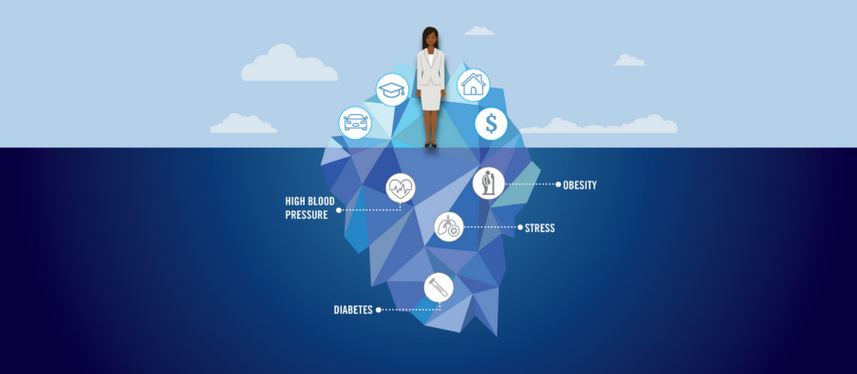LaRouche’s Chess and Community program expands
The Chess and Community program, led by CFR associate Lemuel “Life” LaRoche, expands its scope of work into robotics. Read about how the program will support STEM education for Clarke County youth.
The Chess and Community program, led by CFR associate Lemuel “Life” LaRoche, expands its scope of work into robotics. Read about how the program will support STEM education for Clarke County youth.
CFR’s Drs. Steven Beach and Ron Simmons delivered their Regent’s Charter Lectures April 6. The lectures are part of the celebration of those named as Regent’s Professors by the Board of Regents of the University System of Georgia. Dr. Simmons was appointed as a Regent’s Professor last year and Beach this year (read more about Beach’s recent appointment here).
In these online lectures, Beach describes recent work at CFR with special attention to the ProSAAF intervention designed to help protect Black families (couples and kids) from the negative effects of financial strain on the family and individuals. Simmons explains the effort to better understand biological aging as a precursor to improving outcomes for individuals. Watch both below, or see the entire series of lectures here: 2021 Charter Lectures – YouTube
 CFR’s Dr. Gene Brody and Dr. Tracy Anderson were featured in an “Athens News Matters” story highlighting recent research that demonstrates the efficacy of SAAF and SAAF-T programs. Listen here: Athens News Matters: Family Prevention Programs Empowering African American Families | WUGA | University of Georgia
CFR’s Dr. Gene Brody and Dr. Tracy Anderson were featured in an “Athens News Matters” story highlighting recent research that demonstrates the efficacy of SAAF and SAAF-T programs. Listen here: Athens News Matters: Family Prevention Programs Empowering African American Families | WUGA | University of Georgia
Newly published research by CFR “shows that receipt of high levels of warmth and emotional support and parental involvement provides a shield that allows young Black people to better cope with the negative and pernicious effects of racial discrimination.” The research explores the efficacy of two CFR interventions: SAAF-T and AIM. This work, in a just-published paper by the Journal of American Medical Association Network was featured in a story by UGA Today.

CFR associate Lemuel “Life” LaRoche was recently featured in a story about how he works with local youth through a community based project.
See Lemuel ‘Life’ LaRoche: The Game of ‘Life’ – Georgia Magazine (uga.edu)

The legend of John Henry tells of a post-Civil War Black man who proved greater than a steam powered drill, but afterwards, died from exhaustion. Whether the legend is interpreted as a tragedy, a heroic tale, or both, the story contains a sober truth for all Americans. There are many examples of African Americans who, like John Henry, overcome humble backgrounds and systemic barriers to achieve great success, but at what costs to their health?
You will receive a link to the live stream on YouTube.

Sherman James, a social epidemiologist, is the Susan B. King Distinguished Professor Emeritus of Public Policy at Duke University; was a professor of epidemiology at the University of North Carolina-Chapel Hill (1973-89) and the University of Michigan (1989-03). At Michigan, he was the John P. Kirscht Collegiate Professor of Public Health and has received numerous awards and honors in his prolific career.
This Charter lecture is scheduled for Tuesday, April 6 at 3:30pm.
Register for Zoom Link: https://zoom.us/meeting/register/tJUodeiorj4sEtBb2Q0lWX4dRL-k35u3lx5g
Ronald L. Simons, 2020 Regents’ Professor and Distinguished Research Professor in the department of sociology in the Franklin College of Arts and Sciences
Simons’ research focuses on the processes by which social experiences become biologically embedded and influence mental and physical health outcomes. His research suggests that social factors, such as marital, work, financial and social status variables, impact biological aging and the development of chronic illness more so than the effects of diet, exercise, body mass index, smoking and other known health-risk factors.
Steven R.H. Beach, 2021 Regents’ Professor and Distinguished Research Professor in the department of psychology in the Franklin College of Arts and Sciences
Beach’s scholarship focuses on the way that community, family and marital process affect mental and physical health. His pioneering work and collaborations have shown that strengthening close relationships, including marriage and parenting relationships, can play a critical role in reducing depression and physical health problems, and can buffer the impact of stress from economic and social factors.

Dr. Beach’s scholarship focuses on the way that community, family and marital process affect mental and physical health. His pioneering work and collaborations have shown that strengthening close relationships, including marriage and parenting relationships, can play a critical role in reducing depression and physical health problems, and can buffer the impact of stress from economic and social factors. Dr. Beach also serves as co-director of the Center for Family Research Clinical Program in the Owens Institute for Behavioral Research at UGA.
Dr. Beach has over 250 peer-reviewed articles in leading journals, as well as multiple books and book chapters. He has received over $60 million in grant funding from organizations including the National Cancer Institute and numerous other divisions within the National Institutes of Health. Among other notable work, Dr. Beach recently initiated a program of research with African American families living in rural communities in Georgia, implementing the Promoting Strong African American Families. This program focuses on strengthening marital, co-parenting and parent-child relationships to help foster resilience to economic hardship and experiences of discrimination.
Dr. Beach has received numerous awards, including the Family Psychologist of the Year Award from Division 43 of the American Psychological Association, the President’s Award of Distinction for Team Science by the Georgia Clinical and Translational Science Alliance, and the Best Family Economics Paper of the Year by the National Council on Family Relations.
“Dr. Beach’s work has had a dramatic and positive impact in multiple areas, and I am certain that his future work will continue to further enhance our understanding of the ways in which strengthening marriages and families can improve the quality of lives and the health of communities,” said Lily D. McNair, president of Tuskegee University. “His focus on the health of those confronting multiple sources of chronic stress has been critical to this research effort.”


A $10 million NIH grant will continue work studying rural Black families
Growing up in poverty and experiencing racial discrimination can affect physical health, and researchers at the University of Georgia have been awarded a $10 million grant from the National Institutes of Health to explore how.
Building on previous research in this area, the grant establishes a P50 Research Center of Excellence led by Gene Brody, a Regents’ Professor in the Owens Institute for Behavioral Research and director of the Center for Family Research. Brody and his team will continue their work studying rural Black families, the challenging circumstances they experience, and the health disparities that result.
Growing up in poverty is a powerful variable that forecasts all facets of development— particularly health—throughout a person’s life, according to Brody’s research. In the United States, he said, 20% of all children live near or below the poverty line, and the figures are higher for rural Black youth, whose poverty rates hover around 50%.
“Because many Black children live in economic hardship, they’re at elevated risk for health problems across their life span,” said Brody, principal investigator for the grant. “They are more likely to have shorter life spans than white residents who grow up in the same places.”
Brody’s team, which includes co-investigators from UGA and Northwestern University, will build on 15 years of research funded by previous NIH Center of Excellence awards to advance next-generation research of risk, resilience and health among Black young people living in the southeastern United States.
The grant will fund studies to address three questions:
It will also provide a mentoring program for early career scientists, who will work with more experienced researchers from prevention science, neuroscience, health psychology/immunology, developmental psychology, clinical psychology and biological anthropology. The center will serve as a national resource for several groups: Black families who want to shield their children and adolescents from the health effects of stress; scientists interested in studying health disparities; and public health practitioners who are developing prevention programs for young people.
At UGA, co-investigators for the P50 grant include Steven Beach, professor in psychology and CFR co-director; Brett Clementz, professor in psychology; Katherine Ehrlich, assistant professor in psychology; Steven Kogan, Athletic Association Professor of Human Development; and Lawrence Sweet, Gary R. Sperduto Professor in Clinical Psychology.
Additional co-investigators include Edith Chen, Tom McDade, Greg Miller, Robin Nusslock and Todd Parrish, all at Northwestern University, and Michael Windle at Emory University.
We take that (research) information and use it to inform the development of prevention programs for rural Black children and youth and their families.” — Gene Brody
The Center for Family Research was founded 35 years ago to bring together scholars from diverse disciplines to explore innovative and dynamic ways of examining family life. Scientists at CFR conduct basic research involving rural Black families and children to understand why many families and children are resilient despite living in very challenging conditions.
“We take that information and use it to inform the development of prevention programs for rural Black children and youth and their families,” Brody said. “These programs that we’ve tested in randomized clinical trials and have shown to be effective are now being disseminated around the nation. Families from Harlem, New York, San Francisco, Washington, D.C., Chicago, Pittsburgh, Selma, Mobile and places in between are participating in these prevention efforts.”
The center’s Strong African American Families Healthy Adults Projects began collecting data from nearly 500 Black children living in the rural Southeast in 2008 and has followed up with these children as they entered young adulthood, focusing on self-regulation, physical health and substance use patterns. Recent research has included biological markers and identified what Brody calls “skin-deep resilience”—high functioning on the surface that masks the deterioration of physical health, including a higher propensity for risk factors that predict heart disease, diabetes, stroke and cancer later in life.
CFR receives support from the National Institute of Child Health and Human Development, the National Institute on Alcohol Abuse and Alcoholism and the National Institute on Drug Abuse, among others.
Article written by:

Successful Black adults in their 20s were more likely to have risk factors
The American dream of achieving prosperity requires hard work and sacrifice, and some Americans pay a higher price for that dream than others, according to a new study from University of Georgia researchers.
A team led by Gene Brody found that Black young adults who grew up amid economic hardship and exposure to racial discrimination experienced physical deterioration that persisted through adolescence and well into adulthood—even though on the surface, they were successful.
Brody calls this “skin-deep resilience.” A person may look successful on the surface, he said, but evaluations of physiological functioning—what’s happening beneath the skin—are necessary to get a true picture.
Risk factors
“Black adults develop the chronic diseases of aging—heart disease, high blood pressure, stroke, diabetes, some cancers—at earlier ages than do white adults. Up till a few years ago, we thought these diseases developed during middle age,” said Brody, a Regents’ Professor in the Owens Institute for Behavioral Research and director of the Center for Family Research. “In fact, their origins take place earlier. Our team has found that Black young people who grow up in economic hardship are more likely at the end of the adolescence to show risk factors for later chronic diseases.”
In the study, published in Health Psychology, the researchers found that a group of successful Black adults in their late 20s were more likely to have insulin resistance—a primary risk factor for the development of diabetes—and components of metabolic syndrome, a cluster of risk factors that predicts cardiovascular disease, stroke, cancer and earlier mortality.
We found that having this pattern of above-the-skin resilience but below-the-skin deteriorating health was most likely to be found for kids who had to fight their way out of poverty to achieve success.” — Gene Brody
Brody and his team first began working with the group, which included 489 Black children aged 11 from rural Georgia, through CFR’s Strong African American Families Healthy Adults Projects. Despite living in challenging circumstances, including economic hardship and exposure to racial discrimination, the children were reported by their teachers to be doing well based on evaluations of academics, friendships and emotional/behavioral issues.
Eight years later, when the kids were 19, the researchers found that they still appeared to be successful, as reflected in less drug use, lower levels of depressive symptoms and enrollment in college. But blood tests revealed higher blood pressure as well as higher levels of stress hormones, inflammation and obesity.
Affecting health
The new study assessed the group at age 27 and found the persistence of skin-deep resilience. These young adults were more likely to have earned college degrees and less likely to be depressed or have behavioral problems, but blood tests revealed they were more likely to have insulin resistance and components of metabolic syndrome.
“We found that having this pattern of above-the-skin resilience but below-the-skin deteriorating health was most likely to be found for kids who had to fight their way out of poverty to achieve success,” said Brody, who was appointed Regents’ Professor in 2004. “We have found it mainly for Black children, whose quest to succeed is more difficult, given circumstances like discrimination and poverty, than it is for white children.”
The researchers will evaluate these young people next in 2021. The SHAPE program has been continually funded by the National Institutes of Health since 1989.
Co-authors include Tianyi Yu, assistant research scientist and statistician at CFR, and Edith Chen and Gregory E. Miller, both of Northwestern University.
Article written by:
Source: UGA Today